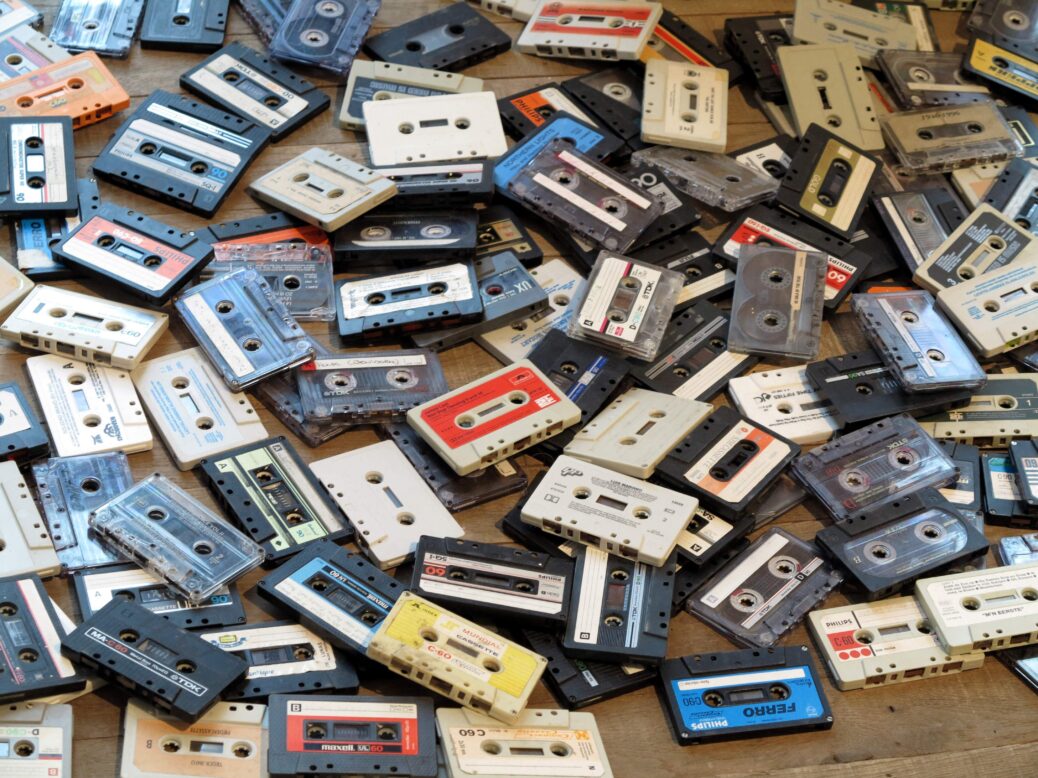
I woke up this morning to find chunks of my own hair in the bathroom bin. Which reminded me that when I’d got in last night, after a few wines, I thought it would be a brilliant idea to tidy up my fringe. I’d been out at the AIM Awards – the annual ceremony at which the Association of Independent Music rewards those within the independent music scene, and I’d been very honoured to be given an award for Outstanding Contribution to Music.
The hair in the bin this morning is testament to the fact that I’ve always taken a somewhat DIY approach to both my hair and my music.
Almost 40 years ago now, with my band the Marine Girls, I made my first record – which meant we recorded our songs on to an eight-track recorder, then took the cassette to a copying service, where we had 50 cassettes made. Then we hand-coloured in the sleeves in our bedrooms, sold a few copies to friends, and put an ad in the back of the NME. If you sent a postal order to my home address, my parents’ home address in fact, I would post you a cassette. My beginnings were about as independent as you can get.
We then signed to Cherry Red Records, whose boss Iain McNay was the one who came up with the idea of an independent record chart in 1980. I have a clipping of the indie chart from 1982 that has “Night and Day” by Everything But The Girl at number 1, and “On My Mind” by the Marine Girls at number nine.
I was rooted in that era, in the wake of punk and post-punk, and in that very particular moment of independence. Small labels had always existed, releasing all manner of music, but the late-1970s explosion was focused on lo-fi garage bands and defiant anti-rockists, passionately committed to low production values, the avoidance of cliché, and a semi-political belief in notions of demystification and anti-stardom.
These values came to define what the word “indie” meant, and ironically, as time went on, they themselves became something of a formula and a prison. When the word “indie” started to refer more to a set of rules about anoraks and fringes, the way you held your guitar, the way you didn’t use your mic stand, I began to feel it was less useful as a progressive ideal, and I drifted away.
But last night, at the awards ceremony, I was reminded of the true meaning and value of the independent music scene. Gongs were given to Jorja Smith, Peggy Gou, Dave, Idles, Erasure, Let’s Eat Grandma, and the label Ninja Tune – home of Bicep, Kelis, Kate Tempest, Wiley, and Young Fathers.
We’re a long way from independent meaning guitar music made by boys. The scene was never just that, and never will be.
There was an energy in the room which was infectious, and also, without wishing to sound sanctimonious, a certain humility. No one made a speech that ran over, everyone was grateful and to the point. Yes, it was quite business-like, not madly hedonistic or badly behaved, but perhaps the independent scene has always had a hard-working ethic at its core: an understanding that you were doing this yourself because no one else would give you the chance, the knowledge that there was no spare cash to be flashed, or wasted, and the shared feeling that you were making music for the love of it, not necessarily to make your fortune.
Nadine Shah talked about refugees and the fun of ticking every box by being a Muslim Geordie woman. Goldie made everyone laugh by referring to a score – hastily adding that he meant a musical score, and not drugs. And the Scottish producer and songwriter Sophie, winning the Innovator Award, made the point that all artists are essentially innovators, and independent spirits.
Those of us who’ve had our spells within the embrace of major labels, trying to make that compromise work, have often ended up in bitter tussles, longing for a return to freedom, the sheer enjoyment and empowerment of doing it for yourself. Cut your own hair! Make your own record! The excitement of being independent never dies, and it blew through the room last night like fresh air.
This article appears in the 12 Sep 2018 issue of the New Statesman, The return of fascism





